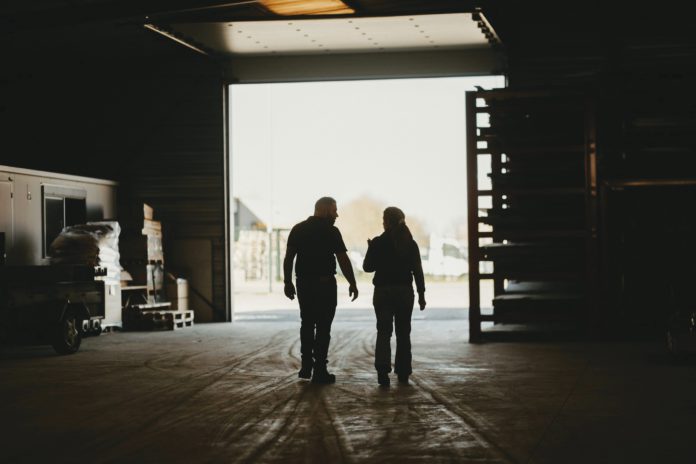In Sonoma County, where the vines run deep, and the family ties run even deeper, wineries aren’t just businesses—they’re legacies, passed down like cherished heirlooms. But it’s not just about wine.
Across industries, family-owned businesses face the same challenges and rewards: keeping the family name alive while navigating the tricky waters of succession, growth and modern industry demands. Many of the region’s most storied vineyards have resisted the corporate buyout trends, choosing instead to remain family-run. These wineries are models for any family-owned business looking to thrive through generations.
Take Pedroncelli Winery in Geyserville, for instance. Established in 1927, this landmark vineyard has weathered Prohibition, economic upheavals and seismic shifts in the wine industry—all while staying firmly in the hands of the Pedroncelli family. Now in its fourth generation of ownership, Pedroncelli continues to produce wines that reflect a steadfast connection to the land and commitment to the values that shaped the business from the start.
For the Pedroncellis, longevity is no accident—it’s the result of generations working together, passing down not just a vineyard but a philosophy of hard work, collaboration and a deep respect for tradition.
And it’s not just wine. Across industries, family businesses like Pedroncelli face similar challenges. Succession planning, generational shifts in vision and external pressures from competitors or the economy can make ensuring a business survives through the years difficult. However, for those who do, success lies in keeping the family involved and the lines of communication open.
Drs. Lucia Albino Gilbert and John Gilbert, writing for the wine trade publication Grape Collective, explored the generational-transition stories of family-owned wineries in Napa and Sonoma County.
“Our Sonoma County and Napa Valley conversations were characterized by remarkable similarities. Wine quality, sustainable agriculture and organic farming practices informed financial planning, and passion for continuing their legacy as a family-owned winery were all paramount,” wrote the Gilberts in a recent email exchange.
“The families’ respect and care for the land and their embrace and love for the lifestyle were unmistakable, despite the hard work involved and the on-going challenges they faced. Most notable was each family’s deep passion for caring for the land and farming, and modeling this passion to their children early on,” they continued.
Another phenomenon the Gilberts observed was that successful intergenerational ventures generally had an “open door” policy for offspring—meaning they could enter when they were ready rather than being pushed into a business in which they hadn’t yet cultivated an interest.
“Indeed, a clear theme was not pushing their children to be interested in farming and joining the family business, but instead allowing their children the freedom to find their own way, including a college education and time away, and giving them the space and tools to find their own path back home,” wrote the Gilberts.
This begs the question, however, about the specific challenges family-owned wineries face when passing the intergenerational reigns.
“Perhaps not surprisingly, significant challenges are associated with the influx of outside money, corporate and private, where the goal is profit rather than caring for the land and crafting quality wine,” the Gilberts suggested. “A related concern is providing small family wineries with a level playing field given the myriad of new regulations.”
Moreover, corporate enterprises’ acquisition of once-family-owned wineries has led to issues for brands bearing family monikers. B.R. Cohn and Kunde Family Winery were among the trove of local name brands subject to auction when Vintage Wine Estates, their owners, filed for Chapter 11 bankruptcy in July. Adair Winery Inc., owned by A. Jayson “Jay” Adair, a top executive at Copart, a national automobile salvage yard venture, purchased the storied holdings.
Running a family business—a vineyard, a restaurant or a manufacturing company—comes with its own unique set of challenges. If the business remains in the family, succession planning, in particular, can be tricky. Without careful preparation, even the most successful family operations can stumble when it comes time to pass the torch. Family dynamics, generational differences in vision and external pressures all add complexity to an already delicate process.
Successful family businesses align around a few key principles. McKinsey & Company, a global management consulting firm with offices in San Francisco, points out that smooth generational transitions are built on five critical elements: strong family relations, sufficient capital for growth, sound governance, professional wealth management and a commitment to preserving family values. The core message is clear: It’s not just about handing over the keys to the business; it’s about ensuring the next generation is prepared, motivated and equipped to take it forward.
But there is a different path for family-owned businesses that aren’t pursuing a traditional legacy plan or even a corporate buyout. Wm Cofield Cheesemakers in Sebastopol has another idea for its long-term succession plan.
“Co-workers are the key to the whole thing; we do our best to treat and pay them well,” says owner Keith Adams. “Ultimately, if it works out, I’d sell the company to the workers.”
Wm Cofield’s approach offers a refreshing alternative to the conventional family legacy model. By considering a worker-owned future, they’re fostering a sense of shared ownership and responsibility, ensuring the business remains in the hands of those who know it best. It’s a strategy that reflects the values of many family-run enterprises in Sonoma County—a deep respect for tradition paired with an openness to new ideas that ensure long-term sustainability.
Whether it’s passing the reins to the next generation or finding innovative ways to secure the company’s future, the key is balancing continuity with adaptability. Family businesses like Pedroncelli and Wm Cofield serve as reminders that legacies aren’t just about maintaining the status quo—they’re about evolving while staying true to the values that built the foundation.
After all, the future of these businesses depends on honoring the past while embracing change.









